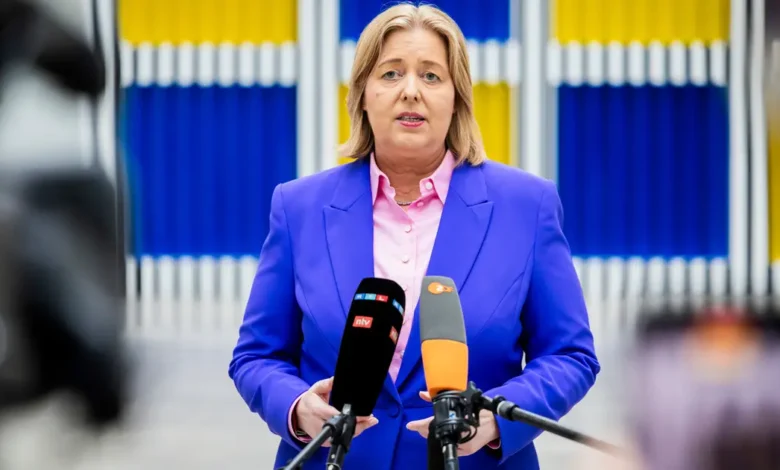German Minimum Wage Set to Rise by About 14% Over the Next 18 Months

Germany’s minimum wage is set to rise by about 14 percent over the next 18 months under an agreement that appears to defuse a potentially divisive issue for the new government.
A commission in which employers and labor unions are represented recommended on Friday that the minimum wage rise from its current 12.82 euros ($15) per hour to 13.90 euros at the beginning of 2026 and 14.60 euros a year later. The head of the panel, Christiane Schönefeld, said it faced a particular challenge this year in view of the stagnating economy and the uncertain forecasts. She said it conducted “very difficult talks,” which were complicated further by the “expectations expressed in public.”
Germany, which has Europe’s biggest economy, has had a national minimum wage since 2015. It was introduced at the insistence of the center-left Social Democrats, who were then–as they are now–the junior partners in a conservative-led government. It started off at 8.50 euros per hour, but the independent commission reviews its level regularly. There has been one political intervention, however: under then-Chancellor Olaf Scholz, a Social Democrat, the government in 2022 ordered an increase to 12 euros an hour, fulfilling a campaign pledge by Scholz.
In their campaign for this year’s election, the Social Democrats called for an increase to 15 euros. New Chancellor Friedrich Merz’s conservative bloc strongly opposed another government-ordered raise. Labor Minister Bärbel Bas, a leading Social Democrat, said she would implement the commission’s proposal. She said she “can live well with it.” “Of course we wanted more for people in this country,” she told reporters. “But she praised the panel for reaching consensus on an increase because it looked for a long time as though we wouldn’t get an agreement at all, and then of course we would have had to talk in the coalition about how to deal with this.”










